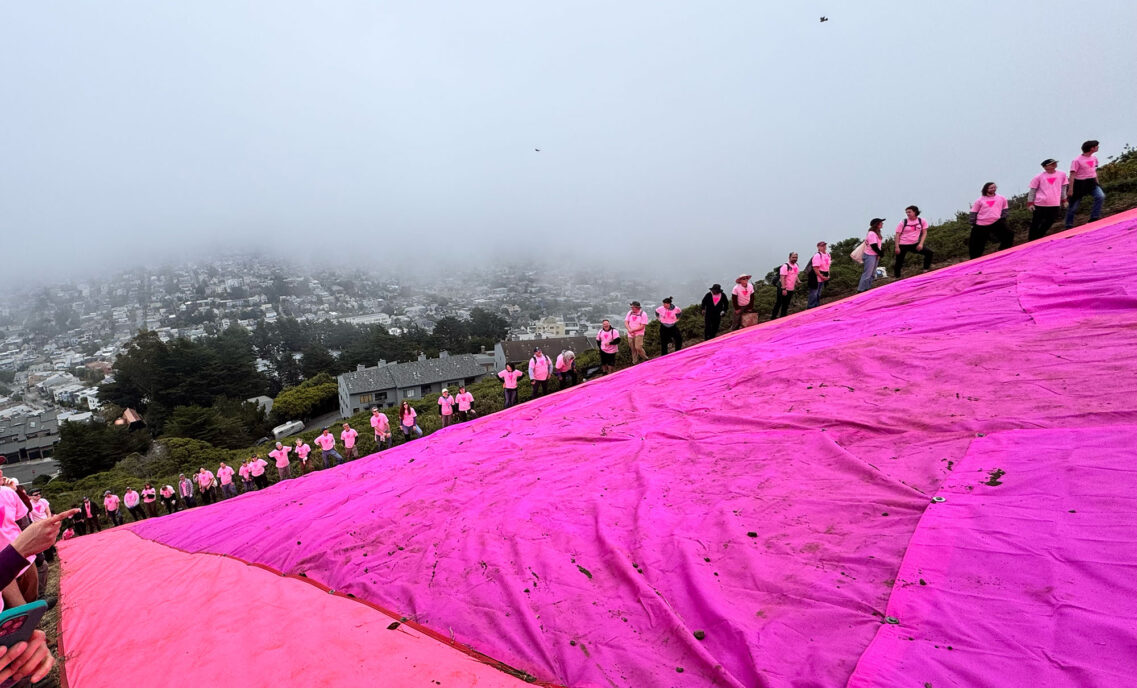Here at LS&Co., we can get behind any cause that supports better cotton and a better world. That’s why we’re committed to investing in local farming communities and worldwide programs such as the Better Cotton Initiative (BCI), which connects LS&Co. with responsible farms that care for both the environment and the livelihood of local communities.
Meet Mahesh Ramakrishnan. He’s one of the sustainable farm planners at Arvind Limited, an organic cotton and denim producer in India that LS&Co. has the pleasure of being in business with. We spoke with Mahesh about what it’s like planning sustainable farming practices, his role at Arvind and how BCI is helping companies such as LS&Co. make clothing more responsibly.
Unzipped: What does your role at Arvind entail?
Mahesh Ramakrishnan: My role at Arvind is to plan, design and implement sustainable farming business models to improve the rural farming community, comprising small and marginal farmers and farmworkers. We do that by building the capacity of the rural community to adopt sustainable farming practices, which improves both the environment and the social infrastructure in the region.
In what ways do you help promote sustainability at Arvind?
I help by developing business models that are not crop centric but instead provide a holistic solution to the farmer. We are finding markets for the other rotational crops that farmers grow (such as pulses, oil seed, cereals, etc.) along with cotton on their farms. By doing so, the interest of farmers in our program is ensured, and farmers heed our advice to farm sustainably.
How did you get into your profession — have you always had a passion for farming and sustainability planning?
I have always belonged to the farming community. I have 18 years of field experience working on sustainable farming models in India. I started my career working in government for the Kerala Horticulture Department, and then became a part of the first global organic cotton research project with FiBL Switzerland in the Maikaal bioRe Project in India.
The three years that I spent working on the research project gave me insight into cotton growing — especially the challenges and problems associated with it. The experience helped me design and implement the right sustainability models for small and marginal rain-fed farmers in India. That’s how I joined Arvind in 2007.
In what ways does Arvind’s work help support farmers? What benefits have you seen within the local farming community?
Because of Arvind’s intervention in the region, the project farmers and farmworkers are receiving benefits such as improved health and hygiene in the community — from the creation of a clean water source and community toilets to employment generation for widows through tailoring programs.
In addition, there’s an economic benefit for the farmers through rainwater harvesting and the promotion of micro-irrigation projects being implemented with funding from Sir Ratan Tata Trust (SRTT). This has helped farmers improve productivity and profitability by providing various irrigation techniques, such as drip and sprinkler irrigation.
Cotton is a notoriously difficult crop to grow around the world. Can you tell us a little about your experiences with the various challenges that cotton farmers face in India, specifically?
In India, more than 60 percent of cotton farming happens in rain-fed conditions. So the main challenges for these farmers are related to the irrigation source. In some areas, the other major challenge is getting materials such as seeds, fertilizers, plant protection, chemicals, etc. Sometimes farmers are cheated, resulting in bad debt due to crop failure. Farmers are also exploited by moneylenders and middlemen due to poor market linkages.
What is it like working with the BCI farmers on sustainable farming?
Our experience working with BCI farmers has been good. There are challenges working with farmers who have low literacy levels; it can be difficult to develop tools and models that work effectively. But all the BCI production principles and criteria have improved farmers’ understanding of sustainability and have allowed them to get connected to the global sustainable market. In the process, they improve their livelihood by following the best practices and thus reducing the input costs.
In your opinion, what are some of the benefits of BCI?
It’s better for the farmers who produce it, better for the sector’s future and better for the environment it grows in.
What do you love most about your job?
We’ve completed almost six years of farm-level implementation of sustainable farming projects (organic and BCI). Each year has been a different experience with new challenges, especially related to the cotton supply chain and the corresponding market dynamics.
I am grateful for the opportunity to design and implement the sustainable farming initiative for Arvind. In India, Arvind is the only major textile manufacturing company to integrate its value chain in order to secure the most valuable — and sustainable — cotton.








